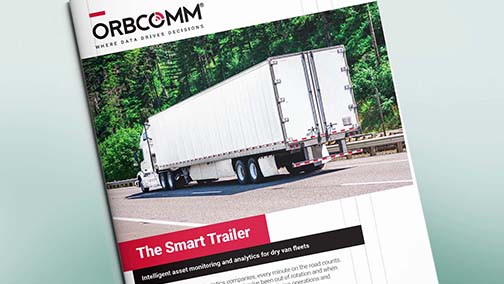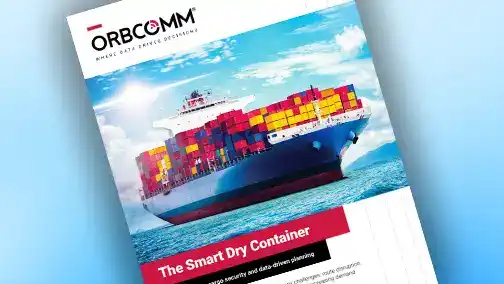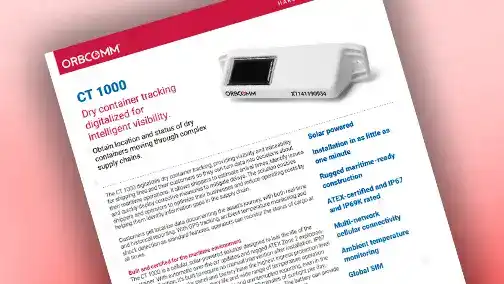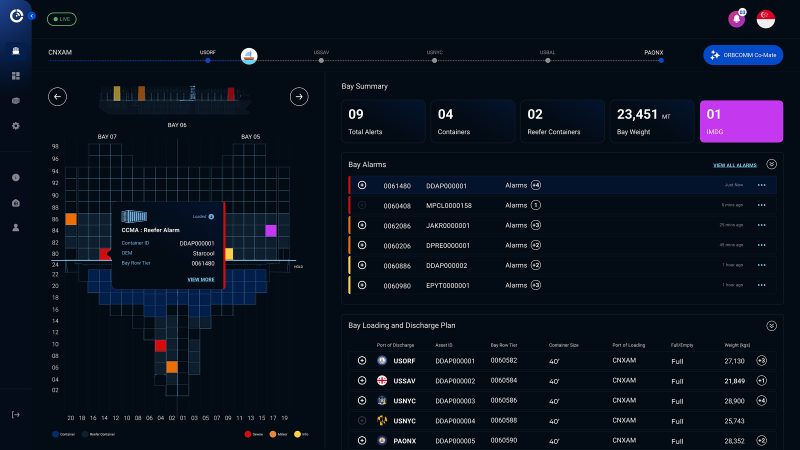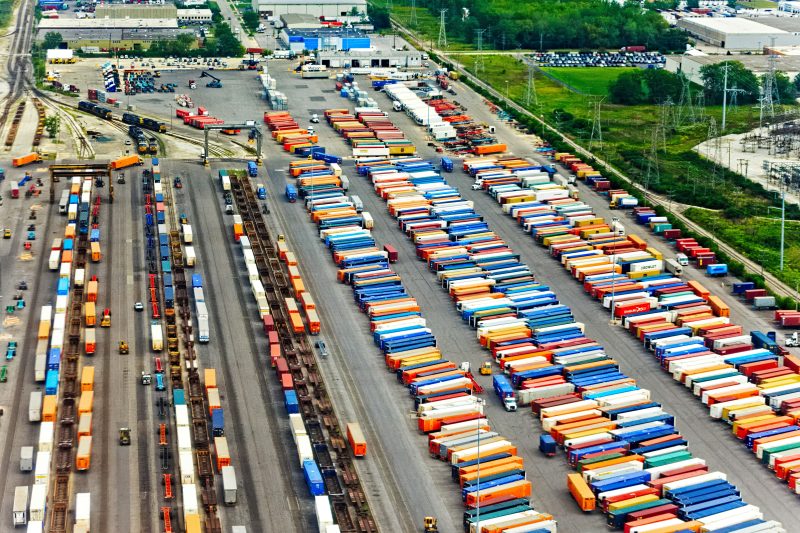The Benefits of a Semi Trailer GPS Tracker
- Blog
- Transportation
- The Benefits of a Semi Trailer GPS Tracker
- Feb 15, 2017
- Lina Paerez
It’s no secret that having immediate access to timely, actionable data can help improve profitability of trailer operations. However, the cost associated with rolling out new trailer tracking technology such as a semi trailer GPS tracker has traditionally held some trucking companies back from pulling the trigger. Fortunately, communication networks and associated telematics devices have both become far more reliable and affordable over the past few years, making it more technically feasible and financially viable for trucking companies to capture and transmit data in real-time in order to make their assets smarter, more visible and connected.
This is especially true in the case of trailer telematics, which is often overlooked considering the tremendous value it can provide fleets. Here are 5 reasons why carriers should consider investing in a semi trailer GPS tracker.
1. Keep Trailers Moving
A trailer parked or idle can cost fleet owners an average of $448 to $760 a day. Without real-time reports disclosing where trailers are and what they are doing, operators are at a disadvantage and at a loss as they search for their idle assets. There simply isn’t enough information to assess fleet performance to make quick decisions about fleet optimization, putting fleet managers behind the curve.
With real-time visibility, a semi trailer GPS tracker delivers the right data at the right time to help carriers improve productivity in the short and over the long-term. Status reports show fleet managers where trailers are, whether they are out of operation, on the road, unloading at a customer’s dock or being used for storage, enabling dispatch to make informed decisions on how to properly assign drivers to trailers. In addition, automatic alerts can be set up to notify dispatch of status changes such as when a trailer has been loaded or unloaded to help companies streamline load/unload cycles, optimize dispatch operation and improve turn times.
Over time, asset data collected via telematics provides the opportunity to develop better business practices and improve productivity and capacity per truck by delivering analytics trends that fleet managers can study to find any weaknesses in their operations. As the efficiency of each trailer goes up, so do the carrier’s profit margins.
2. Find the Right Size for your Fleet
As a capital-intensive business, it is essential for carriers to use assets to their full capacity. This is especially true when market conditions make it difficult for fleet managers to order new trucks and trailers. If a trailer pool is too large, there is a higher chance of trailers sitting at yards instead of being on the road making money. Each idle minute reduces the return on investment of the asset and can result in resource bloat. On the other hand, if a trailer pool is too small, carriers may experience a shortage of trailers in order to efficiently meet customer demand. Alternatively, too few trailers can mean that drivers are waiting longer than necessary to start deliveries, which can have an adverse effect on driver retention
Utilization reports provide detailed information about trailer performance and utilization at each customer site. This information enables carriers to allocate their fleet more efficiently and potentially transfer unused trailers to a customer with higher demand and volumes in order to increase revenues. Analysis of usage and inactivity over time helps define a carrier’s right fleet size and tractor-trailer ratio while also indicating how to reduce capital expenditures without compromising volume. Tracking also lays the groundwork for building incentives into negotiated fee structures (tariffs) to encourage more profitable trailer utilization.
3. Automate Trailer Inventory Reports
Trailer yards are in constant flux making it nearly impossible for fleet managers to stay on top of everything. This is true for enterprise fleets that have hundreds of trucks, but is also accurate when it comes to local fleets that have smaller teams managing the entire fleet operations. Many carriers big and small still rely on physical checks that are labor intensive, expensive and subject to errors. Without real-time trailer status and location data, information about an asset is frequently out of date which can be alarming for resources as valuable as trailers. A trailer tracking solution eliminates inaccurate yard reports and helps save on labor costs. The dispatch process immediately becomes more efficient when tracking devices automatically collect location and status data from trailers across multiple locations and make it easily accessible to fleet managers through a back-end application or dispatch system. With real-time trailer inventory reports, dispatch is able to quickly find trailers and efficiently send drivers to the right location, improving route efficiency and reducing driver downtime. Automating yard checks can result in a 20 to 30 percent reduction in yard truck hours. It also improves driver productivity as more time is spent on the road instead of wandering the yard.
4. Maximize Driver Billable Hours to Improve Driver Retention
According to the American Trucking Association (ATA), America has a shortage of approximately 50,000 drivers, making driver recruiting and retention particularly challenging in the United States. Because a driver’s pay is based on cargo hauling miles, helping drivers maximize time spent on the road is crucial to job satisfaction. Conducting yard checks and driving around looking for trailers limits earning potential and negatively impacts morale, making drivers more likely to consider alternative jobs or job hop for sign-on bonuses, higher pay packages and other new hire incentives.
Detailed status reports enable fleet operators to quickly identify where trailers are in relation to drivers, so they can quickly assign drivers to nearby trailers. They also eliminate issues such as sending drivers to the wrong location, and inefficiencies like having drivers conduct lot and trailer checks physically. Improving overall efficiencies—turn times and asset utilization—makes it possible for drivers to make better use of their available hours of service and in turn, maximize billable hours. When driver morale and retention improves, carriers also spend less on hiring and training costs.
5. Help Protect Against Cargo Theft
According to the FBI, cargo and trailer theft in the U.S. totals between $15 billion and $30 billion a year and the numbers continue to rise. Cargo theft negatively affects customer satisfaction and retention. In addition to unhappy customers, there are other issues tied to theft such as lost productivity, higher insurance premiums, a sizable increase in claims paperwork and potentially damages to the company’s reputation. Driver retention can also become an issue if a carrier is unable to guarantee the driver’s safety when travelling through high-risk areas.
A trailer tracking solution safeguards carriers, customers and drivers from theft with 24/7 remote visibility of trailers and trucks. State-of-the-art trailer tracking devices, sensors, cellular and satellite airtime as well as web and mobile applications, make it possible for carriers to track the location and status of trailers and cargo at all times. Backup satellite communications further ensure connectivity with drivers and trailers even in areas with limited or no cellular coverage or in the event of harsh weather conditions that may compromise the cellular infrastructure. Alerts immediately notify carriers of unauthorized door openings, unexpected loading and unloading locations, unplanned movements and stops and any detection of jamming devices. Geofencing lets operators know exactly when trailers enter or leave defined geographical boundaries so they can take immediate action when alerted. Fuel sensors can generate alerts when rapid fuel loss is detected, enabling quick response.
Fast recovery of stolen assets improves significantly with breadcrumb reports that track trailer movement and location. By controlling threats and repercussions of theft, carriers are able to lower insurance premiums, save money with fewer cargo theft claims, protect drivers and provide reliable customer service.
Trailer telematics is an essential tool for trucking companies not only because it eliminates wasted time and resources but also prevents costly damage to the bottom line. With a trailer tracking solution, trucking companies have the access to rich, actionable data to monitor operations and make smart decisions that will help them improve operational efficiency and profitability overtime.
To schedule a demo and receive a free trailer telematics assessment for your fleet, visit https://www.orbcomm.com/en/solutions/transportation/trailer-tracking

With over 15 years of marketing experience at companies big and small, Lina Paerez leads ORBCOMM’s global marketing team, driving key positioning strategies, product launches, demand generation and brand awareness.







